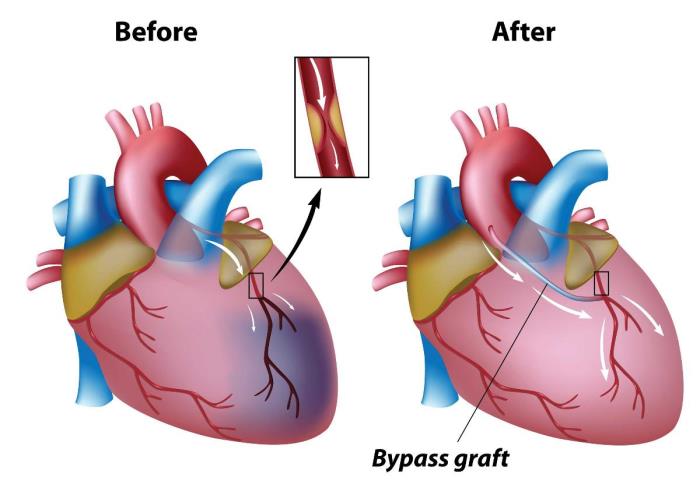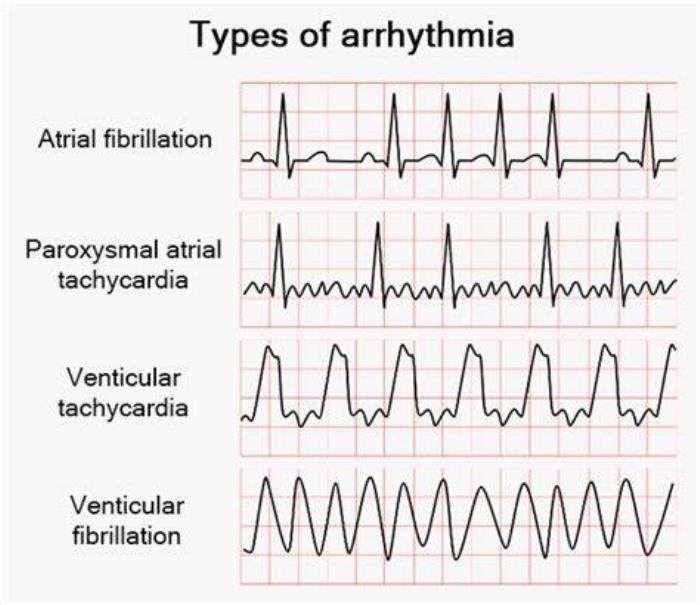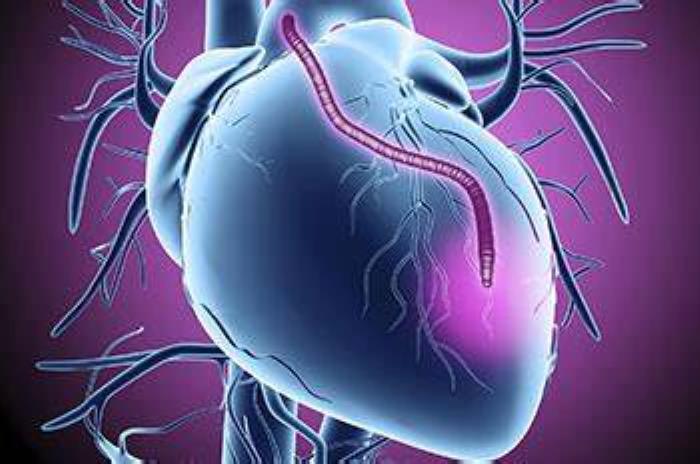Understanding the risks of heart bypass surgery is essential for patients and their families as it prepares them for potential challenges during recovery and encourages proactive measures to minimize complications. Recognizing these risks helps patients make informed decisions, manage expectations, and take the necessary precautions to improve outcomes and support a smoother recovery.
What is Heart Bypass Surgery? A Brief Overview
Heart bypass surgery, or coronary artery bypass grafting (CABG), is a procedure that creates new pathways for blood to flow around blocked or narrowed coronary arteries. By using a grafted vessel from another part of the body, CABG restores blood flow to the heart muscle, reducing symptoms of coronary artery disease, preventing heart attacks, and improving heart function.
Common Risks Associated with Heart Bypass Surgery
As with any major surgery, heart bypass surgery carries certain risks, including infection, blood clots, heart attack, and respiratory issues. While many patients recover well, understanding these risks can help them stay vigilant for warning signs and seek prompt care if needed. Factors like age, overall health, and pre-existing conditions can influence the likelihood of complications and should be discussed with the healthcare team.

Infection Risk: Managing Wound Care Post-Surgery
Infections can occur at the incision sites or in the chest cavity, especially if wound care is not carefully managed. Patients are advised to follow strict hygiene and care routines, avoid exposing wounds to contaminants, and report any signs of infection, such as redness, swelling, or fever, to their healthcare provider immediately. Proper wound care plays a crucial role in reducing the risk of infections post-surgery.
Blood Clots and Stroke: A Serious Concern
Blood clots can form in the veins post-surgery, potentially traveling to the lungs (pulmonary embolism) or brain (causing a stroke). Blood-thinning medications and regular movement, as recommended by healthcare providers, can help reduce the risk of clot formation. Early mobilization, leg exercises, and the use of compression devices are commonly used preventive measures to minimize clot-related risks.
Risk of Heart Attack During or After Surgery
Although heart bypass surgery is intended to reduce the risk of heart attacks, there is still a chance of experiencing one during or shortly after the procedure. This risk is generally low but may be higher in patients with advanced coronary artery disease or pre-existing heart conditions. Medical teams take precautionary measures to monitor and manage heart function throughout the surgery and during recovery.
Respiratory Complications: Breathing Challenges Post-Surgery
Post-surgical respiratory complications, such as pneumonia or difficulty breathing, can occur due to factors like prolonged anesthesia or reduced mobility. Respiratory therapy, deep-breathing exercises, and timely mobilization are often recommended to help reduce this risk. Patients are also encouraged to avoid smoking, practice lung exercises, and, if necessary, receive respiratory therapy to enhance lung function during recovery.
Kidney Dysfunction and Its Relation to Bypass Surgery
Kidney dysfunction can complicate bypass surgery, as the kidneys play a critical role in filtering waste and managing fluids. Patients with pre-existing kidney issues may face higher risks of kidney strain or failure post-surgery due to the increased demand placed on the organs. Close monitoring and proactive management are essential to minimize these risks.
Memory Loss and Cognitive Changes After Surgery
Memory loss and cognitive changes, often called "postoperative cognitive dysfunction," can occur after heart bypass surgery. Factors such as age, anesthesia, and the body’s response to surgery can contribute to short-term memory issues or confusion, but these effects usually improve within months for most patients.
Arrhythmias: Understanding Irregular Heartbeats Post-Bypass
Irregular heartbeats, or arrhythmias, are common after bypass surgery, with atrial fibrillation being the most frequent type. Though often temporary, these irregularities need close monitoring, as they can increase the risk of stroke or require medical intervention to restore a regular heartbeat.

Excessive Bleeding and the Need for Blood Transfusions
Some patients may experience excessive bleeding during or after surgery, potentially requiring blood transfusions. Factors like age, use of blood thinners, and overall health influence bleeding risk, and careful pre-operative assessment is important to anticipate and address these risks.
Reactions to Anesthesia: What Patients Should Know
Anesthesia reactions are rare but can include allergies, respiratory issues, and blood pressure fluctuations. Anesthesiologists conduct thorough assessments to reduce these risks, and patients should inform their doctors of any past anesthesia-related reactions or family history of complications.
Managing Post-Operative Pain and Discomfort
Pain and discomfort are common after bypass surgery, especially around the chest area where incisions are made. Managing this pain is crucial for recovery, as it affects a patient's mobility and mental well-being. Doctors use a combination of medications and therapies to provide effective relief.
Swelling and Fluid Buildup: How It Affects Recovery
Fluid buildup, especially around the lungs or limbs, can be a side effect of surgery. Known as edema, this condition can slow down recovery and lead to discomfort or breathing issues. Medications and compression therapies help manage this risk, promoting a smoother recovery process.
Risk of Graft Failure and the Need for Repeat Surgery
Graft failure occurs when the newly bypassed artery becomes blocked or fails to function properly. This risk is higher in patients with pre-existing conditions like diabetes or high cholesterol. Repeat surgery may be needed in cases of graft failure, making preventive strategies like lifestyle changes crucial post-surgery.
 <="" p="">
<="" p="">
Factors that Increase Surgical Risk: Age, Health, and Lifestyle
Factors like advanced age, pre-existing conditions (such as diabetes and obesity), and lifestyle choices (such as smoking) can significantly increase bypass surgery risks. A comprehensive assessment and optimization of these factors before surgery can improve safety and recovery outcomes.
How Diabetes Affects Heart Bypass Surgery Outcomes
Diabetes poses unique challenges for heart surgery due to its impact on blood vessels and wound healing. Diabetic patients may face a higher risk of complications such as infection or delayed recovery. Meticulous blood sugar management is key to reducing risks and promoting successful outcomes.
Obesity and Its Impact on Surgical Risks
Obesity increases the risk of complications during and after bypass surgery, including infection, breathing difficulties, and longer recovery times. Weight management and health optimization before surgery can help minimize these risks and support better overall outcomes.
Strategies to Minimize Risks Before and After Surgery
Preparing for bypass surgery includes a variety of risk-reduction strategies, such as maintaining a balanced diet, managing chronic conditions, exercising as recommended, and quitting smoking. Post-surgery, following rehabilitation and lifestyle guidance can further decrease risks and support long-term heart health.
Common Causes Leading to Heart Bypass Surgery
Explore the common causes necessitating heart bypass surgery. This section discusses conditions like coronary artery disease, heart attacks, and the lifestyle factors contributing to these issues, providing valuable context for understanding why bypass surgery may be required.
Why Early Detection of Heart Disease Matters for Bypass Prevention
Explore the critical importance of early detection of heart disease in preventing the need for bypass surgery. This section discusses the benefits of regular screenings, recognizing symptoms early, and lifestyle changes that can mitigate risks, ultimately leading to better heart health outcomes.
Conclusion: Weighing the Risks and Benefits of Heart Bypass Surgery
Heart bypass surgery offers significant benefits in treating severe coronary artery disease, but it also comes with risks that vary based on individual health factors. Understanding these risks and working closely with a healthcare team can help patients make informed decisions and approach surgery with confidence.
Best Heart Bypass Surgery in India
The Best Heart Bypass Surgery in India is a critical procedure that reroutes blood flow around blocked arteries, improving blood supply to the heart and enhancing patient health and quality of life.
Best Heart Bypass Surgery Hospitals in India
The Best Heart Bypass Surgery Hospitals in India feature advanced medical facilities and expert cardiology teams, providing comprehensive care from diagnosis to post-surgery recovery for optimal outcomes.
Heart Bypass Surgery Cost in India
The Heart Bypass Surgery Cost in India is competitively priced, ensuring patients receive high-quality treatment with transparent pricing and affordable care options.
Best Heart Bypass Surgeons in India
The Best Heart Bypass Surgeons in India are skilled and experienced professionals, committed to delivering personalized care and achieving the best possible surgical outcomes for heart patients.
FAQ
What are the most common risks in heart bypass surgery?
Common risks include infection, arrhythmias, excessive bleeding, kidney dysfunction, and graft failure. Factors such as age and overall health status can influence the likelihood of these risks.
How serious is the risk of stroke during heart bypass?
While the risk of stroke during bypass surgery is generally low, it increases with age and in patients with existing cardiovascular or neurological issues. Pre-surgical assessments help minimize this risk.
Can heart bypass surgery affect memory?
Yes, some patients experience memory changes or cognitive effects after surgery. These are usually temporary, though age and health status can influence recovery.
How can I reduce the risks associated with heart bypass surgery?
Risk-reduction strategies include managing chronic conditions, following a healthy lifestyle, and carefully adhering to pre- and post-surgical care plans.
Is bypass surgery riskier for older adults?
Yes, advanced age increases the risk of complications. However, careful assessment and proactive management can help older adults undergo successful surgeries with positive outcomes.
Explore the Best Cardiologists and Cardiac Hospitals in India
When it comes to heart health, choosing the right specialist and hospital is crucial. We�ve compiled a list of top cardiologists and cardiac hospitals across India to help you find the best care available.
Top Cardiologists and Cardiac Surgeons in Major Cities
Discover the leading heart specialists in India�s major cities:
Conclusion
Your heart deserves the best care. Explore the links above to learn more about the top cardiologists and cardiac hospitals in India.
Related Resources
At ArogyaJivan, we strive to provide you with the most accurate and up-to-date information to help you make informed decisions about your healthcare. Whether you are searching for the Best Doctors in India or the Top 5 Doctors in India, our resources are tailored to guide you through your medical journey. Additionally, our comprehensive guides on the Best Hospitals in India and the Top 5 Hospitals in India will assist you in choosing the right healthcare facility for your needs. Explore these resources to ensure you receive the best possible care.